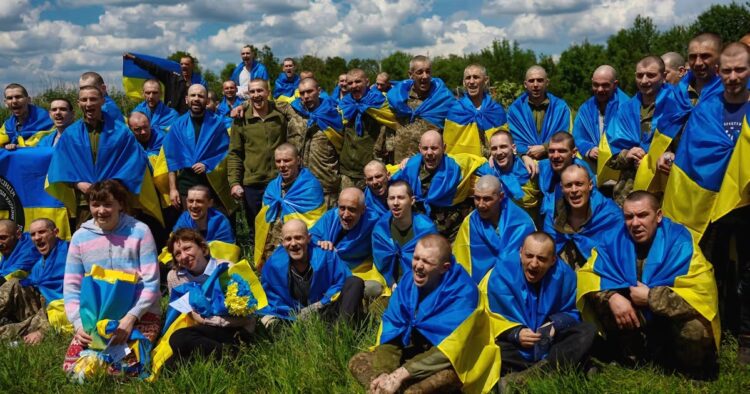In a significant development, Ukraine and Russia have successfully carried out their first prisoner exchange in nearly four months. This exchange involved releasing 150 individuals, marking a positive step towards easing tensions between the two nations.
The negotiations were facilitated by the United Arab Emirates (UAE), acting as a mediator to bring about this exchange.
Ukrainian President Volodymyr Zelenskiy confirmed that 75 Ukrainian prisoners have been returned from Russia as part of this exchange. Among them, four were civilians, while the remaining were members of the military.
Similarly, Russia’s Defence Ministry reported that Ukraine handed over 75 individuals in this deal, as stated by the RIA news agency.
The Coordinating Committee on Dealing with Prisoners of War in Ukraine expressed satisfaction over the exchange, describing it as a significant breakthrough after a prolonged pause. They confirmed the release of 75 defenders and civilians from captivity, underscoring the importance of diplomacy in resolving conflicts and securing the release of individuals held captive.
Photographs released by the committee depicted servicemen draped in the national colors of Ukraine, symbolizing their return home after enduring captivity.
In addition, Ukrainian officials highlighted the return of 19 defenders of Snake Island, a small rocky outcrop in the Black Sea that gained international attention for Ukrainian resistance against Russian forces during the early days of the conflict.
In a poignant aspect of the exchange, the committee revealed that as part of the swap, Russia handed over the bodies of 212 Ukrainian defenders. This gesture provided closure to families and loved ones mourning the loss of their dear ones who bravely defended their country.
Overall, this prisoner exchange represents a significant step forward in efforts to de-escalate tensions between Ukraine and Russia. It underscores the importance of diplomatic negotiations and international mediation in resolving conflicts and ensuring the safe return of individuals held captive.
As both nations continue to navigate their complex relationship, such exchanges offer hope for future dialogue and cooperation in addressing broader issues of contention.

















Comments